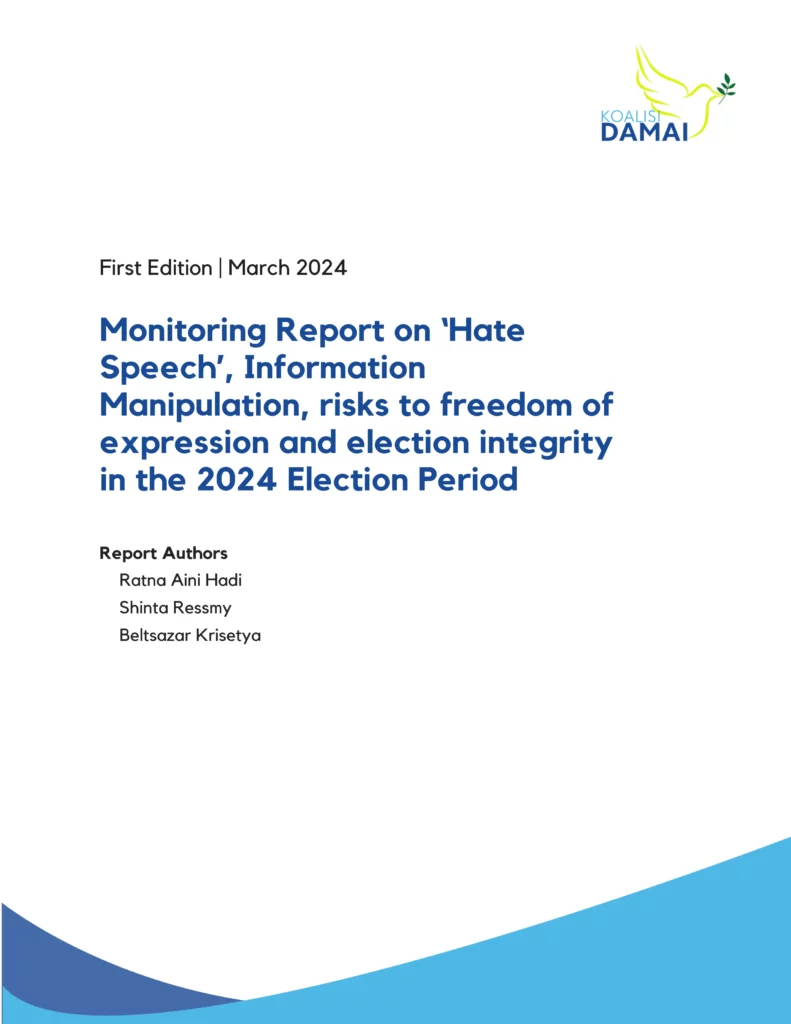Executive summary
This monitoring report aims to delineate the landscape of disinformation, ‘hate speech’ and digital attacks targeting vulnerable groups, as well as threats to freedom of expression and electoral integrity within the context of the 2024 presidential elections in Indonesia. The following report delves into the risks posed by the utilization of social media as a campaigning tool in the 2024 electoral process, encompassing vulnerable groups, candidates, Election Management Bodies, and Platforms.
Some key findings of the report are as follows:
- Disinformation and ‘hate speech’ targeting vulnerable groups tend to follow the evolving socio-political context throughout the 2024 election campaign. Examples include the rise in ‘hate speech’ against Rohingya ethnic minorities migrating to Indonesia or misleading information regarding the voting rights of people with mental disorders during elections. Attacks and discrimination against activists and journalists were also prevalent throughout the campaign period.
- Funding for online political advertising on Meta platforms has been substantial even prior to the campaigning period, and even more so during. Online political ads are primarily funded by supporter groups including volunteer communities and official political campaign accounts, among others.
- The choice of social media platforms as a campaigning tool by political candidates show their strategic approach and targeted audience. Furthermore, based on our monitoring, Election Management Bodies were less effective in disseminating information regarding the electoral process, leading to a knowledge gap among the public.
